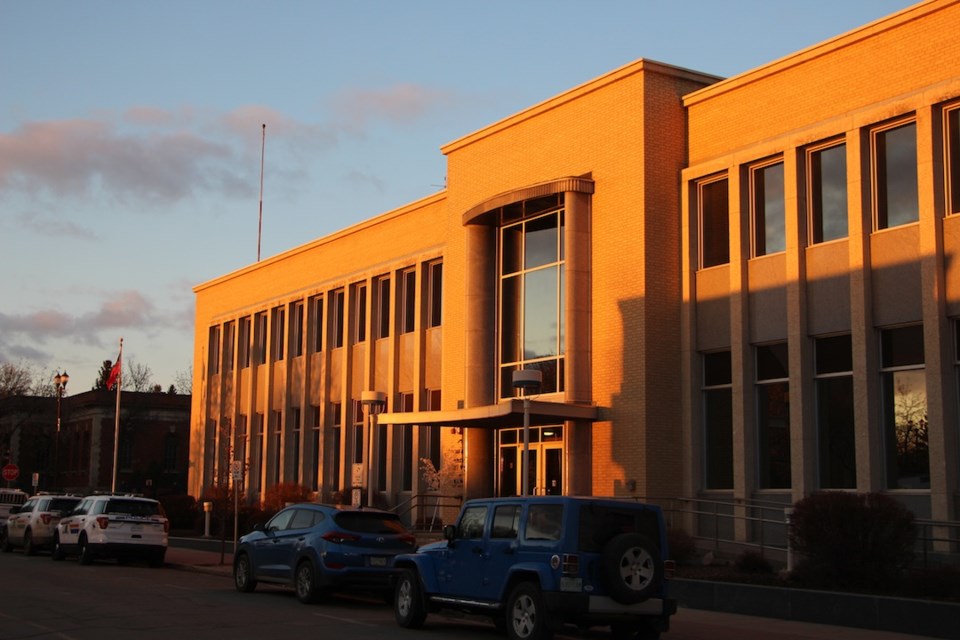In a move that surprised Yorkton Terrier Hockey Club president Corvyn Neufeld, Yorkton Council turned down the club’s recent request for some financial aid.
The Club had made the request of the City at the June 22 meeting of Council.
At the June meeting Neufeld appeared before the regular meeting of Yorkton Council asking for a three-pronged relief package for the club;
• Forgiveness for office rental fees for the period of time the Gallagher Centre has and will be closed to the public. Assuming re-opening on September 1, 2020 this would equate to $2337.93.
• Forgiveness of ice rental fees for the 2019-2020 hockey season equal to $31,402.88.
• Forgiveness of annual advertising fee of $10,000.
The total requested financial support equals $43,740.81.
At its regular meeting Monday Council said a unanimous no, following a recommendation of City Administration to the same effect.
In his presentation to Council this Monday Darcy McLeod, Director Community Development, Parks & Recreation with the City said it was difficult to single out the Terriers for aid.
“Yorkton has a number of valuable community organizations, all of which provide substantial economic benefit to the community. Some of these have cancelled future events, which also provide a significant amount of their annual operating funding,” he noted, adding “We don’t know when the pandemic will end or what the total impact will be on any organization, including our own. There may be worse times ahead for many community organizations and any decision made on this request will have an impact on how the City will be expected to respond in the future.”
Therein lies the rub as they say in terms of the Terrier request, the City and Council would have set a rather substantial precedent had they agreed to the Terrier request. With a high degree of uncertainty still hanging over sport and culture events moving forward with the COVID-19 pandemic still casting its shadow it is difficult for the City to even guess at what groups may request, or require moving forward.
This was not a case of Council not understanding the significance of the Terriers within the city.
Coun. Mitch Hippsley said the Terriers are obviously a valuable part of the community.
“They’re part of the culture of the city,” he said adding as hockey is to Canada the Terriers are to Yorkton.
Coun. Aaron Kienle agreed the team holds a special place in the city.
“There’s no doubt the Terriers are important,” he said, but added he talks to people involved with other sport groups and they too have concerns following the impact of COVID-19.
So how to help one and not another becomes a question.
Mayor Bob Maloney said, “This is a really dire situation,” adding the business model of limited fans in the seats is not a good one for the SJHL. “... It could signal the end of the league.”
In the end Council unanimously followed the Administration recommendation to turn down the Terrier request, but to work with them on a suitable payment plan.
As noted Terrier president Neufeld was unhappy over the decision.
“Yeah, I would say I was surprised and definitely disappointed,” he told Yorkton This Week post meeting.
“The unfortunate part is this is a dire situation for us,” he said, adding a significant portion of the team debt, some $60,000, pre-dates COVID-19, with the overall debt since growing. He added the exact debt is not known, although audited financials are due any day in preparation for the team’s annual general meeting Sept. 14.
While Neufeld said the next step is not clear for the franchise, he noted the Terriers are not alone in facing a debt crisis.
“It’s not a problem that’s unique to us,” he said, adding other SJHL teams are also in the red.
Neufeld also questioned why the City had not entered into discussions to seek a suitable solution in the six weeks between the team’s presentation, and Monday’s decision.
That is a legitimate question to be sure given the impact Monday’s ‘no’ may have on the club.
While talks now can perhaps ease that impact, what is needed on a broader basis is for the City to determine just where it is willing to go if other groups come looking for aid – McLeod noted at least one other group was waiting on the Terrier decision before deciding its own course of action.
The line could be a long one, especially if COVID-19 flares this fall/winter as some have suggested might happen. The City and Council need at least the framework of a plan that the community can see to know whether help is available. Fine details, given the uncertainty of the pandemic would be difficult, but the basic knowledge of whether the City is in, or out, in terms of aid for culture and sport groups moving forward is something we need to know.



